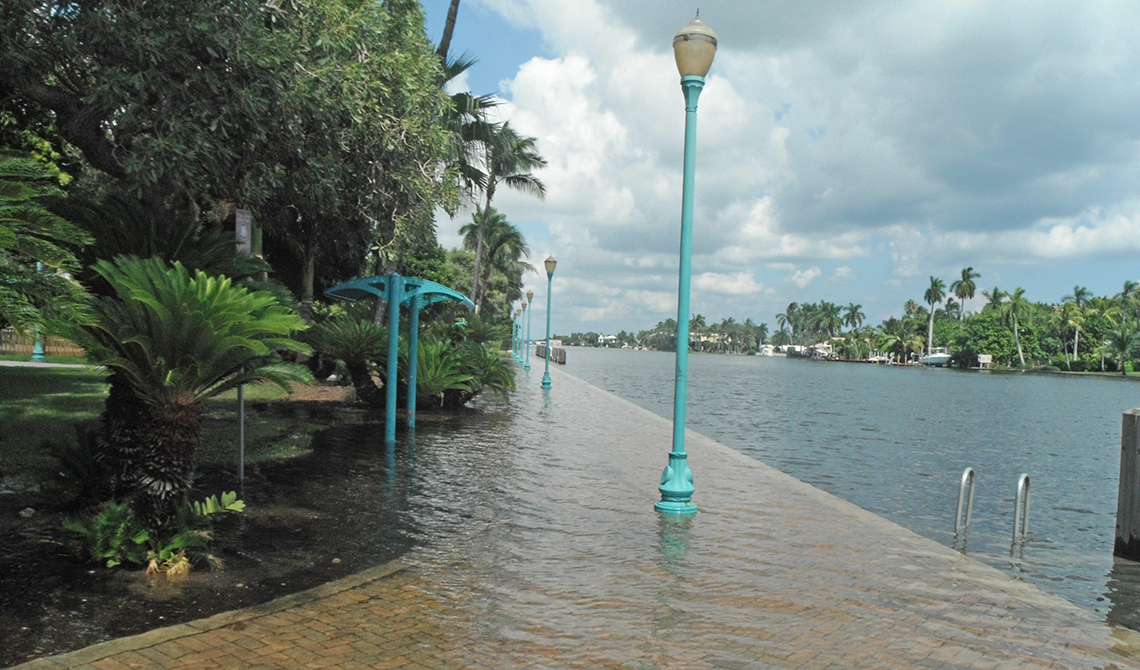NSF Grant Awarded to Challenge Response for Sea Level Rise Along Gulf of Mexico
Wednesday, Jan 26, 2022
The NSF awarded $149,577 to a team of researchers from FAU and three other institutions to build an interdisciplinary research network to address the challenge of responding to sea level rise along the Gulf of Mexico. Diana Mitsova, Ph.D., Professor of Urban and Regional Planning, is a co-principal investigator collaborating with researchers from the University of Miami, Texas A&M, and Louisiana State University. The planning grant will address the challenge of responding to sea level rise (SLR) in linked urban-rural systems located along the Gulf of Mexico Coastal Region (GCR). The typical SLR response strategies in the GCR are often practiced differentially across urban versus rural areas. The aim of this planning grant is to build a team that will engage diverse stakeholders working together toward a consolidated SLR adaptation strategy that enables urban and rural communities to collaboratively sustain the natural and physical infrastructure that links them together.
Compared with much of the world, the rate of SLR is quite high across much of the GCR and its landscape is a relatively low-lying coastal plain. Moreover, disadvantaged minority groups compose a large fraction of both the urban and rural population in this region, yielding a high degree of social vulnerability.
Mitsova remarks, “There is a growing understanding that the risks of sea level rise faced by communities require a collaborative foresight that will take into account a wide range of cross-sector interdependencies. The goal is to identify key issues and outline potential areas of future inquiry that would be most beneficial to the affected communities.”
The project team will bring together an inclusive and diverse group of researchers, community leaders, and policy makers who do not normally interact. This planning grant provides unique opportunities to (a) coalesce interdisciplinary teams, focus on the commonalities at the urban-rural linkages, (b) identify priorities, needs, and incentives of diverse stakeholders, (c) build knowledge and trust across these communities, and (d) formulate the research objectives, hypotheses, and methods for an innovative research network structure. The team’s will focus on the inclusion of minority constituencies, groups, and institutions that have been historically excluded from the SLR response conversation.